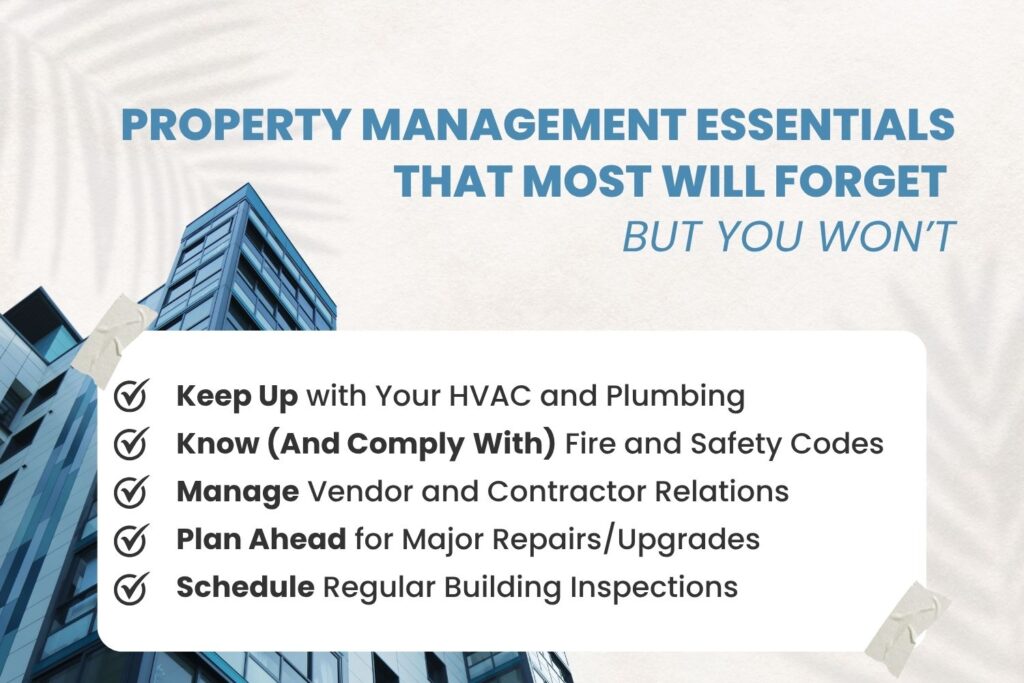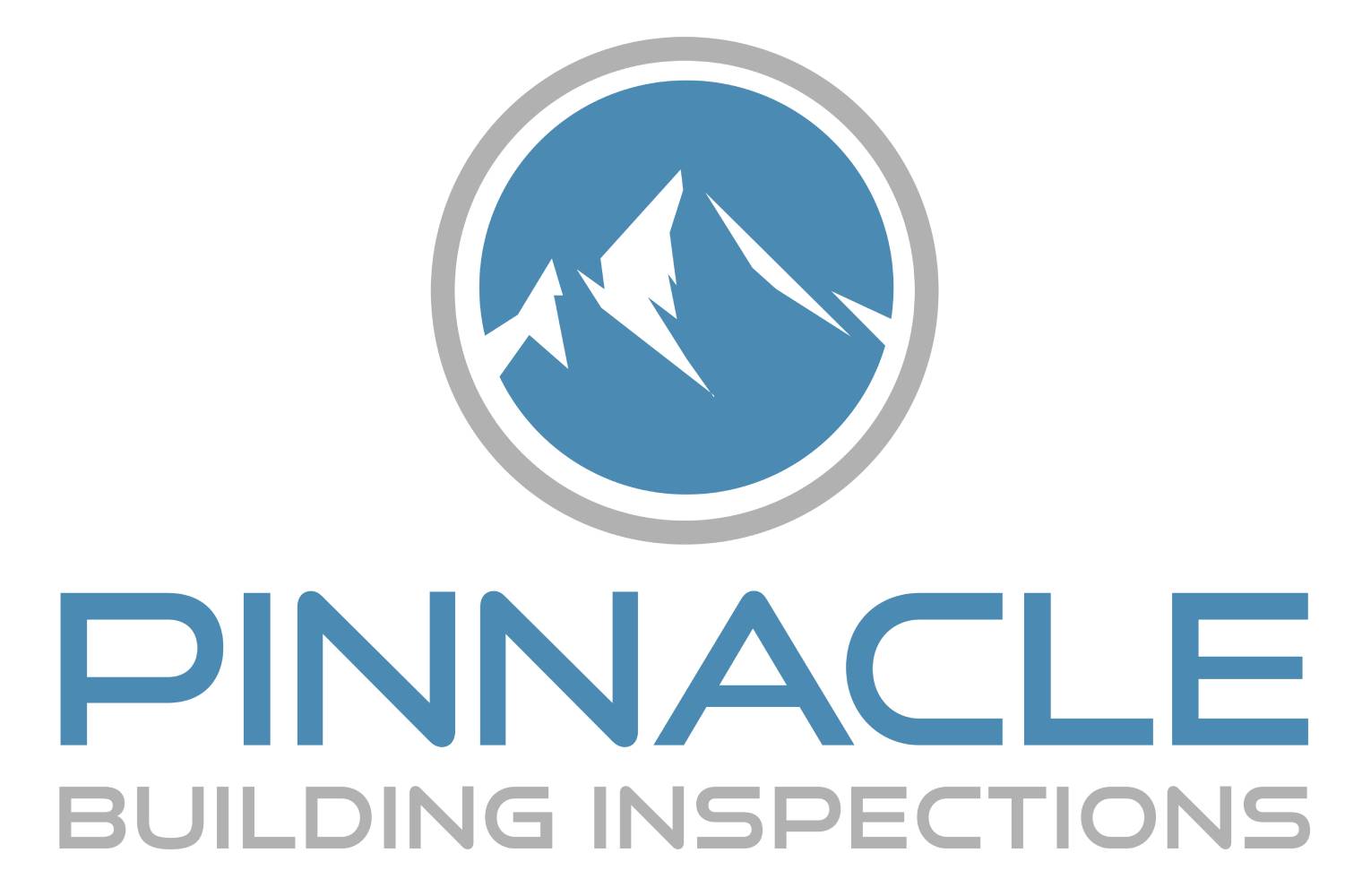Essential management of a commercial property involves much more than rent collection or daily maintenance. It requires proactive oversight, careful planning, and an understanding of the systems that keep a building functional and safe. Whether you manage an office park, retail center, or industrial property, a solid management strategy will keep tenants satisfied and preserve your asset’s value.
Here are five essential property management tasks that should never be overlooked if you want to avoid costly repairs, ensure legal compliance, and extend the life of your building.
1. Thorough and Regular Building Inspections
Routine inspections are the foundation of preventative maintenance. By conducting regular walkthroughs, you can identify issues before they escalate into major problems.
What to look for:
- Water stains or leaks in ceilings and walls
- Roof damage or ponding
- Cracks in foundations or walls
- Faulty wiring or overloaded circuits
- HVAC noise or irregular air flow
- Pest activity or entry points
You should walk through the property monthly, and schedule a more detailed, professional inspection quarterly. Partnering with a commercial inspection company adds value through unbiased documentation, thermal imaging, and insight into long-term concerns.

2. Keep HVAC and Plumbing Systems in Top Shape
Two of the most expensive and disruptive failures in commercial buildings stem from heating and water systems. A well-maintained HVAC system supports good air quality and energy efficiency, while reliable plumbing prevents costly leaks and associated health risks.
Best practices:
- Replace air filters regularly
- Schedule semi-annual HVAC servicing
- Inspect pipes for corrosion, slow leaks, or water pressure issues
- Flush water heaters and clean cooling towers
- Ensure restrooms are fully operational and ADA compliant
Ignoring these systems can lead to sudden breakdowns, lost revenue, and upset tenants.
3. Stay on Top of Fire and Safety Code Requirements
Compliance with fire safety and local codes is not optional. These tasks directly impact the health and safety of building occupants, and failure to meet requirements can result in fines or lawsuits.
Key tasks include:
- Annual fire alarm and sprinkler testing
- Replacing expired fire extinguishers
- Checking emergency exit signs and lighting
- Conducting evacuation drills
- Keeping clear access to emergency exits
Keep a compliance log and set calendar reminders to avoid missing inspection dates or renewal deadlines.
4. Manage Vendors and Contractors Effectively
Most commercial property managers rely on third-party vendors for cleaning, landscaping, certain maintenance, security, and more. Without clear oversight, service can decline, and costs may rise without warning.
Some tips for this:
- Use written contracts with performance expectations
- Require proof of insurance and licensing
- Keep detailed records of work performed
- Rotate or review vendors every year
- Be proactive with scheduling, especially during peak seasons
Strong vendor relationships improve consistency and ensure work is done correctly the first time.

5. Plan for Long-Term Capital Improvements
Good property managers look ahead. Capital planning allows you to forecast major repair costs and system upgrades so you’re not caught off guard.
Examples of capital projects:
- Roof replacements
- HVAC system overhauls
- Elevator modernization
- Asphalt resurfacing
- Window and door upgrades for energy efficiency
A reserve study or long-term facility plan can help you prioritize these projects and budget accordingly. This protects your building’s value and shows tenants you’re invested in upkeep.
When to Call in an Inspector
While regular checks by staff are important, a professional commercial inspection gives you a deeper look. Consider scheduling one:
- Before purchasing or leasing a property
- During annual capital planning
- After major weather events or system failures
- When tenant complaints point to structural or hidden issues
Pinnacle Building Inspections provides detailed reporting and expert insight that helps property managers reduce risk, document asset conditions, and plan for improvements with clarity.
Conclusion
Managing a commercial property means staying proactive and strategic. By focusing on inspections, system maintenance, compliance, vendor oversight, and capital planning, you can prevent emergencies and improve your property’s long-term performance.
If you’re unsure about the current state of your building, an inspection can help you take the next right step. The more you know, the better you can manage.

